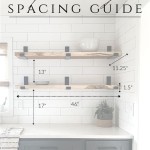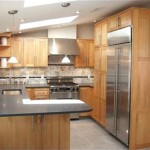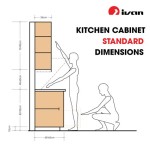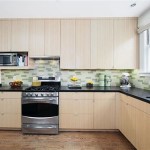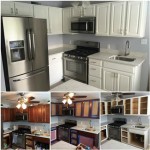Typical Width of Kitchen Cabinet Doors: A Comprehensive Guide
Kitchen cabinets are a fundamental element in any kitchen design, impacting both functionality and aesthetics. Understanding the standard dimensions, including door widths, is crucial for planning renovations, new builds, or simply replacing existing cabinetry. This detailed guide explores the typical widths of kitchen cabinet doors, factors influencing size variations, and considerations for achieving optimal kitchen design.
Standard Kitchen Cabinet Door Widths
Kitchen cabinet doors come in a range of standard widths to accommodate diverse storage needs and design preferences. These widths are generally correlated with the interior cabinet width and the intended function of the cabinet itself. Common standard widths include:
* 12 inches: Frequently used for narrow cabinets storing spices, oils, or utensils. * 15 inches: A versatile size suitable for a variety of cabinet types, including those housing small appliances or pantry items. * 18 inches: Often found in base cabinets designed for storing pots, pans, and dishes. * 21 inches: Common in larger base cabinets and pantry units. * 24 inches: Typically used for wider base cabinets and oven cabinets. * 30 inches: Generally reserved for extra-wide base cabinets, pantry units, and cabinets designed for specific appliances like refrigerators or dishwashers. * 36 inches: Often utilized for oversized pantry units and cabinets flanking built-in appliances.Factors Influencing Cabinet Door Width Variations
While standard widths offer a useful framework, various factors can influence the final dimensions of kitchen cabinet doors. These include:
*Cabinet Style:
The overall style of the kitchen cabinets (e.g., Shaker, contemporary, traditional) can subtly affect door dimensions. Ornate styles may incorporate wider frames or decorative elements that influence the door size. *Custom Cabinetry:
Custom-built cabinets provide greater flexibility in door sizing, allowing for non-standard widths tailored to specific needs. *Overlay Style:
The relationship between the cabinet door and the cabinet frame (full overlay, partial overlay, inset) impacts visible frame width and consequently, the door dimensions. Full overlay doors cover most of the frame, requiring larger dimensions compared to inset doors that sit within the frame. *Drawer Fronts:
Cabinets with drawer fronts, especially those with multiple drawers, necessitate adjusting door widths to accommodate the drawer configuration.Considerations for Optimal Kitchen Design
Choosing appropriate cabinet door widths is essential for achieving a functional and visually appealing kitchen. The following considerations are key during the design process:
*Accessibility:
Ensuring ample space between cabinet doors for easy opening and closing is crucial for accessibility and comfortable movement within the kitchen. *Proportion and Balance:
Selecting door widths that are proportionate to the overall kitchen layout and cabinet sizes creates a balanced and harmonious aesthetic. *Storage Requirements:
Carefully evaluating storage needs for different kitchen items helps determine the optimal cabinet widths and internal configurations. *Visual Appeal:
Consider the visual impact of various door widths. Wider doors can create a more streamlined and modern look, while narrower doors might lend a more traditional feel.Understanding Cabinet Door Terminology
Familiarity with common cabinet door terminology is helpful when discussing dimensions and styles with professionals:
*Stile:
The vertical frame pieces of a cabinet door. *Rail:
The horizontal frame pieces of a cabinet door. *Panel:
The central section of the cabinet door, often made of wood, glass, or other materials. *Overlay:
The amount the cabinet door covers the cabinet frame.Measuring Existing Cabinet Doors
Accurately measuring existing cabinet doors is essential when planning replacements or renovations. Follow these steps for precise measurements:
* Use a tape measure to measure the width of the door at its widest point. * Record the measurement in inches. * If replacing multiple doors, measure each door individually as slight variations can occur.Working with Professionals
Collaborating with kitchen designers or cabinet makers is invaluable throughout the design and installation process. They offer expert guidance on selecting appropriate cabinet door widths, optimizing kitchen layout, and ensuring a seamless and professional result. Seeking professional advice is especially beneficial for complex projects or when incorporating custom cabinetry.
Impact of Door Width on Functionality
The width of cabinet doors directly impacts the functionality of the kitchen. Consider these points:
*Accessibility to Items:
Wider doors offer easier access to larger items, such as pots and pans or serving platters. *Corner Cabinet Accessibility:
Specific hardware solutions, like swing-out shelves or lazy Susans, may be necessary for corner cabinets, and the door width needs to accommodate this hardware. *Appliance Integration:
Cabinet doors surrounding appliances need to be carefully sized to allow for proper clearance and ventilation.
N Standard Kitchen Dimensions Renomart

Measuring For Your New Cabinet Doors Kitchen Dimensions Cabinets Wall

Cabinet Face Dimensions

N Standard Kitchen Dimensions Renomart

Kitchen Unit Door Combinations

Kitchen Cabinet Refacing Door Depot
Guide To Kitchen Cabinet Sizes And Dimensions

Kitchen Unit Door Combinations

Barker Door Cabinet Doors And Drawer Boxes

Abcs Of Kitchen Cabinets And Specifications Granite Quartz Countertops Factory
Related Posts


